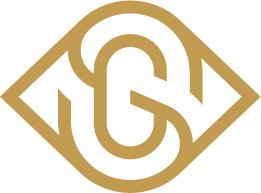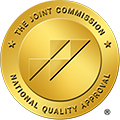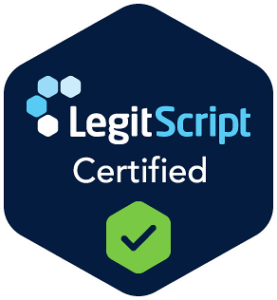However, they also create a euphoric high, which can lead to addiction. Misuse of opioids can quickly spiral out of control, causing physical dependence and life-threatening risks.
Atlanta, like many U.S. cities, faces a severe opioid crisis. Overdose deaths have risen due to fentanyl, a synthetic opioid 50 times stronger than heroin. Many people start with prescription painkillers before turning to cheaper, more dangerous street drugs. Georgia has seen a sharp increase in opioid-related hospitalizations and deaths, making substance abuse treatment more critical than ever.
Recovery is possible with the right help. Professional treatment programs in Atlanta provide medical and emotional support to break free from addiction.
How Can You Tell If Someone Is Struggling with Opioid Addiction?
Here are the key warning signs of opioid addiction:
Physical Symptoms
- Frequent drowsiness or “nodding off”
- Slurred speech and poor coordination
- Abnormally constricted pupils that stay small, even when it’s dark.
- Nausea, vomiting, or chronic constipation
- Slowed or shallow breathing
- Unexplained weight loss
Behavioral & Psychological Signs
- Taking higher doses than prescribed
- Doctor shopping (getting multiple prescriptions)
- Neglecting work, school, or family duties
- Withdrawing from friends and hobbies
- Mood swings, irritability, or depression
- Intense cravings for opioids
- Anxiety when unable to use
Dangerous Warning Signs
- Using opioids in secret
- Financial problems due to drug spending
- Risky behaviors to obtain opioids
- Experiencing withdrawal symptoms (sweating, shaking, muscle pain)
Why Is Professional Treatment Essential for Opioid Addiction?
In professional care, doctors safely manage withdrawal using FDA-approved medications like buprenorphine that curb cravings without the high. Therapists help uncover what drives addiction—whether it’s untreated pain, trauma, or mental health issues. Studies show medication-assisted treatment cuts relapse risks in half compared to going cold turkey.
Atlanta’s treatment centers create customized recovery plans because addiction affects everyone differently. Some need intensive inpatient care, while others thrive in outpatient programs. The goal isn’t just sobriety—it’s helping people regain control, repair relationships, and build a life where drugs aren’t the answer.
With professional support, recovery isn’t about white-knuckling through withdrawal—it’s about healing safely and sustainably.
What are the Opioid Addiction Treatment Options in Atlanta?
- Medication-Assisted Treatment (MAT)- MAT combines FDA-approved medications with therapy to ease withdrawal and cravings while treating addiction’s psychological aspects. This proven approach helps maintain recovery.
- Inpatient Rehabilitation- 24/7 medical care in residential facilities provides structured treatment for severe addictions. Includes detox, counseling, and skills training in a supportive environment.
- Outpatient Programs- Flexible treatment allows patients to attend therapy while keeping work/home commitments. Ideal for mild to moderate addiction with stable support systems.
- Intensive Outpatient (IOP)- IOP offers 9-20 therapy hours weekly and balances structure with independence. It is often used as a step-down care after inpatient treatment.
- Dual Diagnosis Treatment- Specialized programs simultaneously treat opioid addiction and co-occurring mental health disorders like depression or PTSD for comprehensive healing.
- Aftercare Support- Continued therapy, support groups, and sober living homes help maintain sobriety after primary treatment ends, preventing relapse.
How Do Behavioral Therapies Help in Opioid Addiction Recovery?
Cognitive Behavioral Therapy (CBT)
CBT therapy in Atlanta helps individuals recognize and modify the negative thought patterns that contribute to opioid use. By identifying triggers and developing healthy coping mechanisms, patients learn to break the cycle of addiction.
Dialectical Behavior Therapy (DBT)
DBT focuses on building emotional regulation skills to manage stress and reduce impulsive behaviors. This therapy helps patients develop distress tolerance and improve interpersonal relationships
Motivational Interviewing
This client-centered approach helps resolve ambivalence about quitting opioids. Therapists guide patients to explore their motivations for change, strengthening their commitment to recovery.
Group Therapy
Support groups with peers provide a welcoming environment to discuss personal experiences and difficulties. Participants benefit from collective wisdom and accountability while reducing feelings of isolation.
Contingency Management
This method, grounded in research, promotes sobriety by rewarding positive behavior. Individuals are given physical incentives for achieving treatment milestones and staying substance-free.
Every type of therapy provides its advantages, and treatment plans typically blend several methods to support well-rounded care. Professional guidance ensures the most effective strategies are selected for individual recovery needs.
Dual Diagnosis Treatment for Co-Occurring Disorders
Specialized programs combine addiction therapies with psychiatric treatment, using approaches like trauma-informed care and cognitive behavioral therapy. Medication management helps stabilize mood and cravings without addictive substances. By treating the whole person, not just the addiction, patients develop healthier coping mechanisms and reduce relapse risks.
Therapists work closely with psychiatrists to create personalized plans that account for each patient’s unique mental health needs. This comprehensive approach leads to a more stable, lasting recovery by resolving the underlying issues that contribute to substance use. Ignoring co-occurring disorders often leads to treatment failure, making dual diagnosis care essential for many in recovery.
What to Expect During Opioid Detox and Withdrawal
Medical detox programs provide 24/7 monitoring and medications like buprenorphine or clonidine to ease discomfort. Healthcare providers routinely monitor vital signs to maintain safety. The initial phase typically spans 5 to 7 days, but some mental health symptoms can continue beyond that period.
Detox alone doesn’t constitute treatment, but it’s an essential first step that prepares patients for ongoing therapy. A complete recovery plan should include counseling and aftercare to address the root causes of addiction and prevent relapse. Medical supervision during this vulnerable period significantly improves long-term success rates.
Patients should expect emotional support alongside medical care, as withdrawal can be psychologically challenging. The detox environment is designed to be safe and comfortable, helping individuals focus entirely on their recovery during this critical phase.
The Role of Support Groups in Long-Term Recovery
Participants gain practical wisdom from others who’ve walked the same path, learning relapse prevention techniques and healthy coping mechanisms. The group accountability helps maintain motivation during challenging moments. Many members find sponsorship particularly valuable, working one-on-one with someone who has long-term sobriety.
Treatment centers throughout Atlanta frequently incorporate support group attendance into aftercare plans because of their proven benefits. Regular participation reduces feelings of shame while reinforcing sober living skills. The shared experience creates powerful bonds that often become the foundation of lasting recovery networks.
Finding the Right Opioid Treatment Center in Atlanta
Understanding Insurance Coverage in Georgia
People living in Georgia can choose from multiple ways to pay for addiction treatment. The Affordable Care Act requires most health insurance plans to provide coverage for substance abuse treatment. Medicaid expansion in Georgia now covers many essential services, including medical detoxification, medication-assisted treatment, counseling sessions, and ongoing recovery support. Many private insurance plans also offer substantial coverage for these evidence-based treatments.

Georgia Sky Outpatient Detox - Your Partner in Recovery
- Medically managed detox using FDA-approved medications, including buprenorphine (Suboxone)
- Individualized withdrawal management plans
- Daily monitoring by addiction medicine specialists
- Coordination with ongoing treatment providers for the continuum of care
Please note: As a dedicated detox facility, we recommend all patients transition to comprehensive addiction treatment programs following withdrawal management for sustained recovery.
We work with most private insurance providers and offer self-pay options. Our clinical team creates personalized treatment plans focused on safe, comfortable opioid withdrawal, with same-day admissions available when appropriate.
Contact Georgia Sky Outpatient Detox to learn more about our evidence-based withdrawal management services. Our admissions specialists can verify insurance coverage and help you start treatment with the proper medical support for opioid detoxification.



